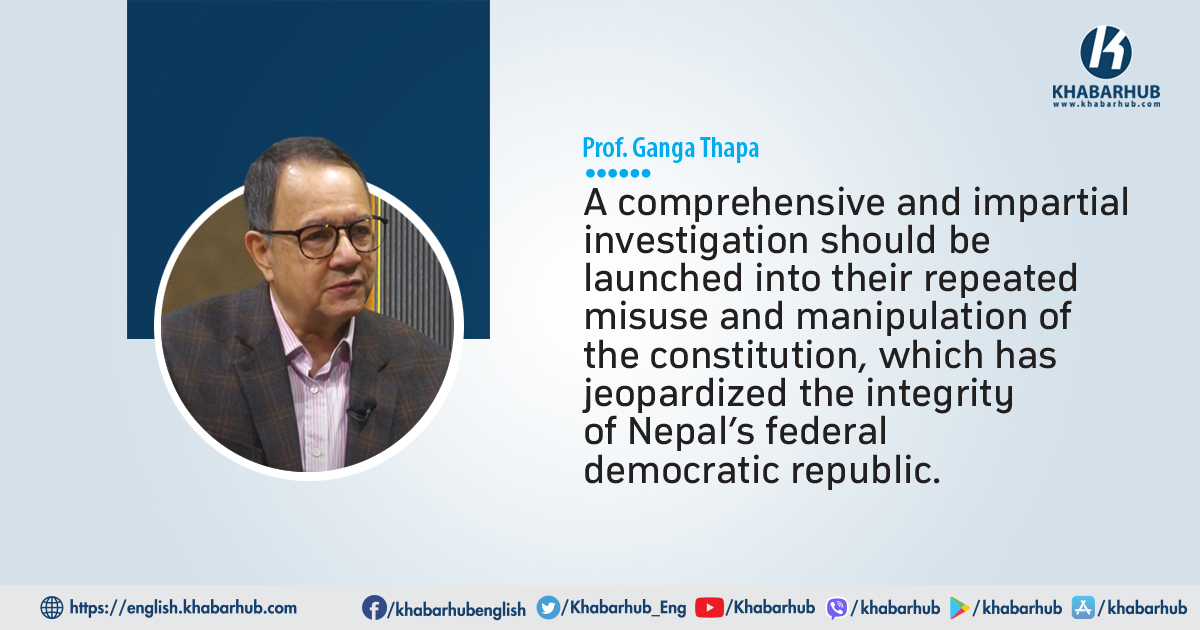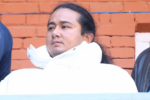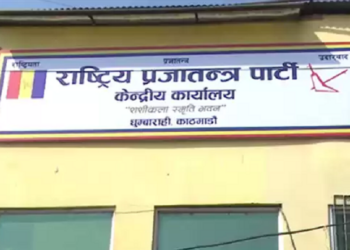Autocrats often rely on repression to suppress dissent and deter opposition. But does it work in the long run?
Evidence suggests that while state repression can leave lasting scars—alienating citizens politically and coercing their behavior—it can also backfire. Individuals raised in areas subjected to heavy-handed crackdowns tend to develop strong anti-regime sentiments over time.
Take Nepal as a case in point. The country faces a troubling form of networked state capture, where a corrupt nexus of political elites, business interests, security forces, and the judiciary converges to serve the ruling regime.
Over the past four decades, both Nepal’s constitutional monarchy and republican form of government have witnessed an unprecedented decline in the promotion of sustainable democracy, despite ruling elites frequently extolling democratic values and institutions.
Although a handful of individuals—most notably the late Girija Prasad Koirala, who laid the foundations of bad governance, along with Madhav Kumar Nepal and Baburam Bhattarai, who emerged as disruptive forces in Nepal’s democratic trajectory—played significant roles in shaping the political landscape, the past few decades have seen the country fall under the grip of an even more damaging trio: Oli, Dahal, and Deuba (ODD).
This toxic governance fuels public frustration, intensifies protests, and pushes society toward a troubling, though still nascent, form of autarkic withdrawal.
Their inability to implement meaningful political and economic reforms raises serious concerns about the quality of democratic deliberation and governance in Nepal.
Their leadership has entrenched human insecurity and elevated corruption to unprecedented levels, further eroding public trust in democratic governance.
What’s more troubling is the persistent breakdown of the state-society relationship, which should ideally serve as a vital bridge between public opinion and policymaking.
In this process, the normative structures of the state became increasingly entangled with a form of corporate governance, where the affluent class played a dominant role—essentially acting as the top managers of the nation.
In the context of Nepal, this reflects strong corporatist ties between the state and business elites, coupled with a weak civil society incapable of fostering sustained state-building. This dynamic has fueled widespread public resentment toward the political system.
The rise of authoritarian populism in Nepal—characterized by growing insecurity and exclusion—has revealed the profound vulnerability of the poor to various security threats.
This trend has also highlighted a broader decline in democratization, encompassing administrative, informational, and public service dimensions.
As a result, the general populace is increasingly shifting its loyalties toward conservative ideologies, becoming less willing to engage with or place trust in state institutions, and demonstrating a growing pessimism about the future of democracy.
Nepal, situated in a geopolitically sensitive region between India and China, is a country where multiple political dynamics collide, often intensifying internal instability.
Recent political analyses reveal a worrying trend: civil society has largely failed to mobilize public sentiment or drive meaningful sociopolitical reform.
Those in positions of privilege remain unaccountable, while the masses—the plebeians—continue to bear the brunt of this dysfunction.
At the helm are figures like Khadga Prasad, whose erratic behavior raises serious concerns, and Arzu Rana, mired in allegations of human trafficking—specifically, the shocking scandal of converting Nepalis into fake Bhutanese refugees. Both face growing political and moral condemnation.
Allow me to revisit a Facebook post I made on March 30, 2025, in which I proposed a short-term corrective mechanism as a pathway toward a long-term, transparent political solution for Nepal. This proposal entailed four immediate and interlinked steps.
Their regime sustains itself through political vendettas, elitist posturing, and the weaponization of law enforcement—all tactics aimed at preserving power rather than serving the people.
This toxic governance fuels public frustration, intensifies protests, and pushes society toward a troubling, though still nascent, form of autarkic withdrawal.
Agree or not, Nepal is currently embroiled in a festering internal political crisis, marked by chronic inaction stemming from policy failures, poor governance, and a lack of strategic governmental rationality—all of which pose serious risks to national integrity.
Central to this deteriorating state of affairs is the role played by psychopathic traitors—such as the ODD—whose fetishization of formal governance institutions has consistently advanced the interests of powerful stakeholders, undermining democratic norms and the broader public good.
This phenomenon can be understood as a form of political fantasy, and we argue that Nepal has, in fact, failed to establish a durable democratic regime.
At present, more than ever before, Nepal appears to be drifting toward a right-wing resurgence—largely fueled by unresolved debates surrounding the abolition of the monarchy and increasing calls, albeit in nascent form, for its potential restoration.
While the monarchy has not emerged as a central topic among politicians, academics, or the media, a crucial and often overlooked fact remains: the monarchy was abolished in 2008 without a public referendum.
This pivotal decision was made unilaterally by three major political parties—the Nepali Congress, CPN-UML, and the Maoists—with ultimate authority resting in the hands of Girija Prasad Koirala, Madhav Kumar Nepal, and Pushpa Kamal Dahal.
In bypassing broader public participation, particularly through a referendum, this top-down approach effectively undermined the democratic ethos of the Constituent Assembly.
Had the constitution and the question of monarchy been ratified through a popular vote, it could have conferred lasting legitimacy upon Nepal’s political system.
These steps are essential not only for addressing Nepal’s immediate political crisis but also for reinforcing democratic legitimacy through institutions capable of performing regime-sustaining functions within a culturally resonant democratic context.
Allow me to revisit a Facebook post I made on March 30, 2025, in which I proposed a short-term corrective mechanism as a pathway toward a long-term, transparent political solution for Nepal. This proposal entailed four immediate and interlinked steps.
First, the three political figures previously referred to as the ODD trio—Oli, Dahal, and Deuba—must be barred from active politics.
A comprehensive and impartial investigation should be launched into their repeated misuse and manipulation of the constitution, which has jeopardized the integrity of Nepal’s federal democratic republic.
Second, a national government should be constituted by temporarily suspending the current parliament.
This transitional government must include new and untainted figures from the existing parliamentary parties, complemented by select individuals from civil society and the intellectual community with established public credibility.
Third, genuine dialogues and inclusive conclaves must be organized with the participation of all dissenting and critical voices.
These proceedings should be transparently documented and disseminated through reputable media outlets to ensure public trust and accountability.
Fourth, a national referendum should be conducted to decide key questions of national identity and governance—particularly whether to revive aspects of the Sanatan way of life, reinstate a ceremonial monarchy, and maintain the current provincial structure.
These contentious political issues should be presented to the people during a general election to be held within one year, as a means to restore democratic momentum and institutional legitimacy.
Such a process could empower the electorate to hold future governments more accountable and responsive to public will.
These steps are essential not only for addressing Nepal’s immediate political crisis but also for reinforcing democratic legitimacy through institutions capable of performing regime-sustaining functions within a culturally resonant democratic context.
(Views expressed in this opinion are the writer’s and do not necessarily reflect the editorial stance of Khabarhub — Editor)









Comment